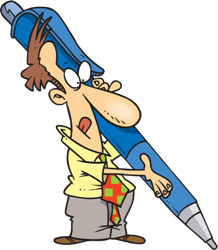English Spelling Rules
 Here are some of the basic
English spelling rules you should definitely
know about.
Here are some of the basic
English spelling rules you should definitely
know about.
First of all:
Common spelling mistakes
14 of the Most Commonly Misspelled Words in English
Click Here for Step-by-Step Rules, Stories and Exercises to Practice All English Tenses
The complete list of English spelling rules
Lesson 1: the "Magic" ELesson 2: Homophones
Lesson 3: Kn- and Wr- at the Beginning of Words
Lesson 4: Silent H
Lesson 5: -mn and -mb Combinations at the End of Words
Lesson 6: Silent G and Silent P
Lesson 7: Pronunciations of -ough
Lesson 8: Common English Prefixes
Lesson 9: Common English Suffixes
Lesson 10: C, K, CK, and QU
Lesson 11: Word Ending Sounds V, J, and Long E
Lesson 12: Double Letter Endings -ll, -ff, -ss, -zz
Lesson 13: I Before E Except After C
Lesson 14: Comparative and Superlative Adjectives
Lesson 15: Forming Adverbs
Lesson 16: -able or -ible
Lesson 17: -ance or -ence and -ancy or -ency
Lesson 18: -ious or -eous
Lesson 19: -sion, -tion, or -cion
Lesson 20: Differences between British and U.S. English
Specific spelling rules for verb tenses
When dealing with tenses, we often need to change the spelling of the verb.
So here you have the commonly used English spelling rules for
verbs:
For general tips and advice read: How to Improve Your Spelling, a Guide for Students
Read the rules and make sure to practice them at the Exercises Section.
Another good way to improve your spelling is reading.
That way you see the words again and again and get familiar with their spelling. So visit the English Short Stories section, too.
Now, let's go over to some more general spelling rules:
Spelling rule #1: S or ES?
The normal rule to make regular plurals in English, or to change a regular verb to the he/she/it form (also known as the third person singular), is to add S to the end of the word.For example:
- One dog --> Lots of dogs
- I work --> She works
- A car --> Some cars
- You like tea --> She likes coffee
But sometimes we need to add ES instead. When the word ends in: CH, SH, X, SS (and ZZ, but this isn't common), then we have to add ES.
For example:
- I watch TV every night. --> He watches TV at the weekend.
- I have one wish. --> The genie gave him three wishes.
- Can you fix this? --> A mechanic fixes cars.
- Give me a kiss! --> She gave her daughter lots of kisses.
Spelling rule #1B: the problem with Y
Students are often confused by the letter Y.Sometimes it is removed from the end of the word before the word is changed into a plural or third person singular form, and sometimes it isn't.
So what's the rule?
There are two types of letters in English. Vowels (A, E, I, O, U) and
consonants (all the other letters).If a word ends in Y, and before the Y there is a consonant (for example, fly, try, spy) then the Y is removed, and IES is added.
For example:
- I want to fly a kite. --> A pilot flies a plane.
- He was a spy. --> The spies were caught.
- Try this exercise. --> Sarah tries very hard in her lessons.
If the word ends with a vowel then Y (for example, play, tray, toy) then simply an S is added.
For example:
- I used to play with dolls. --> She plays with other children.
- He has a new toy. --> The dog has lots of toys.
Spelling rule #2: doubling consonants
Some words which end in consonants double the last letter when suffixes (extra letters) are added to the end of the word.For example:
- hot --> hotter
- swim --> swimming
So what's the rule?
If a word ends in a consonant
that has one vowel before it, then the last consonant is doubled.For example:
- travel --> traveller (British English spelling)
- big --> biggest
This does not usually happen with words with more than one syllable ending in ER or OR. (Of course, there are exceptions!)
For example:
- fur / furry / furred
- plot / plotted / plotter
- miser / misery / miserly
- target / targeted
- bigot / bigoted
- travel / traveler (American English spelling)
Be careful!
If a word has two vowels before the last consonant, or there are two
consonants at the end, the last letter isn't doubled.For example:
- old --> oldest
- shoot --> shooter
Spelling rule #3: the disappearing E
If a verb ends in E, then the E is removed before adding ING to the end of the word.For example:
- make --> making
- come --> coming
Students often make mistakes with spelling in English. There are other English spelling rules, but these are the most basic ones.

What's Next?
Get Updates, Special Offers, and English Resources
Download your FREE GIFT (the first two chapters of
English Short Stories Book and Workbook)
as soon as you join!

By submitting your email, you consent to receiving updates and newsletters from us and to the sharing of your personal data with third parties for the purposes of sending you communications. We will not spam you. You can unsubscribe at any time. For more information, please see our privacy policy.





